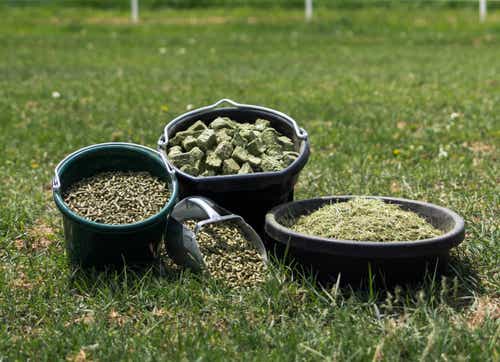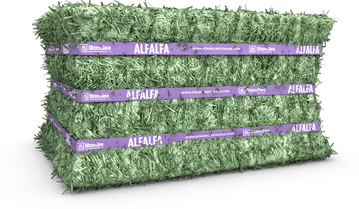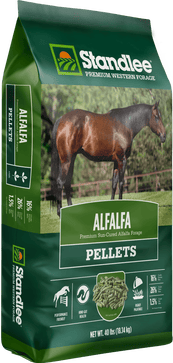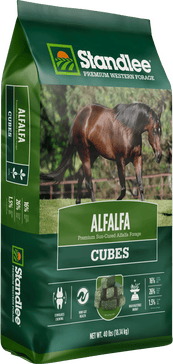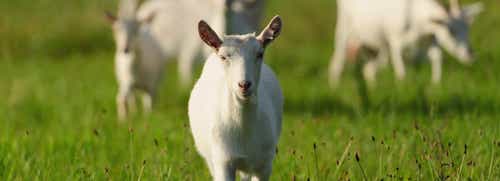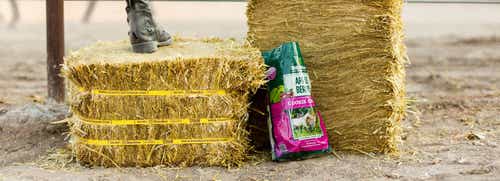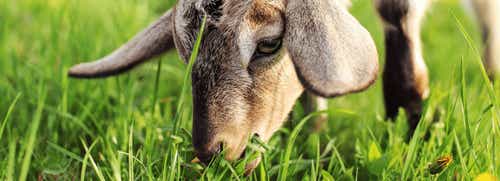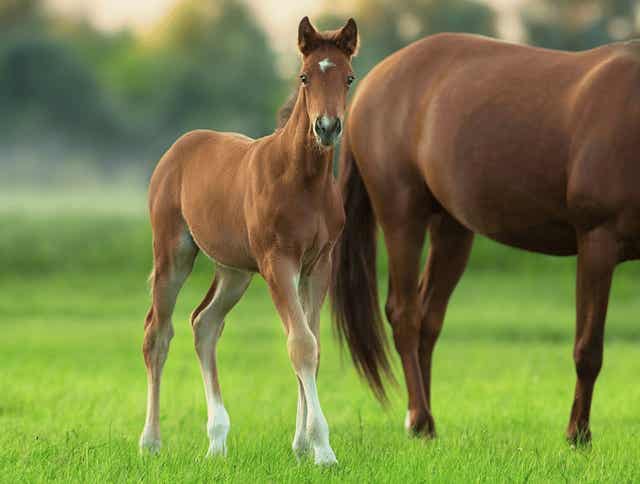
Essential Nutrition Guide on How to Feed the Lactating Broodmare
Proper nutrition for a lactating broodmare is crucial for her health and the well-being of her foal. The correct diet directly impacts the mare’s ability to produce milk, ensuring the foal receives the vital nutrients necessary for growth and development. This article explores key nutritional factors, including the differences in dietary needs during early and late lactation, and how to develop a balanced feeding program for lactating mares. By prioritizing the right nutrients and monitoring her condition, you can help your mare thrive while giving her foal the best possible start.
Understanding Milk Production in Mares
Milk production is a vital aspect of nurturing foals, and grasping its nuances can greatly affect the broodmare's health and the foal's development. The initial milk produced after giving birth, known as colostrum, is especially critical for the foal’s health. Rich in antibodies, colostrum provides essential nutrients that support the foal's immune system. Timing is key; foals should receive colostrum within the first few hours of life to maximize immunity and health benefits.
Several factors influence milk production in lactating mares. Genetics, age, and overall health are significant, but nutrition is critical. A well-balanced diet tailored to the needs of a lactating mare, including high-quality forage and concentrated feed, can provide the critical nutrients to promote adequate milk production. Environmental conditions, such as stress and climate, also impact a mare's ability to produce milk efficiently.
Throughout the lactation period, milk production evolves. Initially, a broodmare will produce a high volume of nutrient-dense milk to support the rapid growth of her foal. As foals mature, they begin to consume hay, pasture and grain concentrates and their reliance on milk for nutrition decreases. This corresponds with the normal decline in milk production that a mare experiences in late lactation. Monitoring both the mare and foal during this time is essential, adjusting their diets and care as needed to ensure their health and well-being. By providing optimal nutrition and care, you can support the mare's milk production and contribute to the foal's healthy development.
Nutritional Demands During Early and Late Lactation
In early lactation, a broodmare's nutritional demand significantly increases to support her health and milk production. Key nutrients essential during this period include high-quality protein, energy (calories), and adequate levels of minerals and vitamins to support milk production.
As lactation progresses into late lactation, beginning when the foal is four months old, the mare's nutritional needs shift. Since the mare is producing less milk, the demand for energy and protein begin to decrease. It is critical to continue to monitor the body condition of both the broodmare and growing foal to ensure they are both getting the proper amount of nutrients required. The normal dietary shift in late lactation is to maximize intake of high-quality forage while gradually reducing the amount of grain concentrate.
Monitoring for signs of nutritional deficiencies in lactating mares is vital. Nutritional deficiencies can result in the following:
- Weight loss
- Poor coat condition
- Reduced milk production
- Behavioral changes, such as lethargy or irritability
Regularly assessing her body condition and consulting with a veterinarian or equine nutritionist ensures she receives the right balance of nutrients throughout the lactation period.
Essential Nutrients for Lactating Broodmares Mares
Feeding a lactating broodmare requires careful balance of essential nutrients to ensure her health and adequate milk production. Protein is critical, as it is vital for tissue repair, immune function, and the production of high-quality milk. Table 1 below shows the protein requirements from early pregnancy to early lactation more than double; a lactating mare should receive an adequate amount of protein to support tissue demand for both lactation and recovery from pregnancy.
Energy is another essential component, providing the necessary calories for her daily activities and milk production. Complex carbohydrates (fiber), found in high-quality forages, are particularly beneficial as they release energy slowly, helping to maintain stable blood sugar levels. Fats are also crucial, providing a concentrated source of energy and improving overall caloric intake without requiring large volumes of feed.
Vitamins and minerals
In addition to protein and energy, vitamins and minerals are key for ensuring adequate amounts of high-quality milk. Key vitamins, such as A, D, and E, support immune function and overall health, while minerals like calcium and phosphorus are essential for the development of the foal and the production of milk. Table 1 shows the peak calcium and phosphorus requirements during early lactation and how it decreases through late lactation. Providing a balanced intake of these nutrients ensures milk quality and a healthier broodmare.
500 kg (1100 lb horse) – NRC 2007
| Nutrient | Early Pregnancy (< 5 months) |
Late Pregnancy (11 months) |
Early Lactation (First 90 days) |
Late Lactation (91 days to Wean) |
|---|---|---|---|---|
| Protein, g/day | 630 | 893 | 1535 | 1398 |
| Digestible Energy, Mcal/day | 16.7 | 21.4 | 31.7 | 29.4 |
| Calcium, g/day | 20 | 36 | 59.1 | 41.7 |
| Phosphorus, g/day | 14 | 26.3 | 38.3 | 26.2 |
(Table 1)
Water requirements for lactating mares
A lactating mare needs access to fresh, clean water at all times, as proper hydration directly affects milk production. Maintaining electrolyte balance is also essential, especially during hot weather, to prevent dehydration and ensure optimal health. Providing free choice access to fresh, clean water and a forage rich diet will satisfy water needs. Table 2 shows that water requirements from maintenance to lactation for a broodmare, can double to properly hydrate for adequate milk production.
500 kg Mare (1,100 lb) – NRC 2007
| Nutrient | Maintenance | Pregnancy | Lactation |
|---|---|---|---|
| Water, gallons/day | 6 - 8 | 7 - 10 | 11 - 20 |
(Table 2)
Creating a feeding program for your lactating mare
Feeding a lactating mare requires a tailored approach to ensure she receives proper nutrition to support her health and her foal's growth. Start by accurately calculating her daily feed requirements. A lactating broodmare should be provided with free choice access to high-quality forage (hay and pasture). Most mares will comfortably consume 2.5% of her body weight in forage per day. For instance, if your mare weighs 1,100 pounds, she will consume 27.5 pounds of forage daily. Since lactating mares have high protein and calorie requirements, high-quality alfalfa hay can be fed as part of the diet (25 – 75% of forage) to ensure adequate protein and energy intake.
Next, balancing forage and concentrates is crucial. High-quality forage should form the foundation of her diet, as it provides necessary fiber and promotes digestive health. However, during lactation, additional energy and protein may be required, which can be met through concentrates. Aim for a balanced ratio, ensuring that the majority of her intake comes from forage, while concentrates complement her nutritional needs. A grain concentrate, designed for a lactating mare, should be fed according to manufacturers’ guidelines to ensure adequate nutrient intake.
Monitoring Body Condition and Health During Lactation
Monitoring the body condition score (BCS) of a lactating broodmare is essential for ensuring her health and the well-being of her foal. The BCS is assessed on a scale of 1 to 9, with 5-7 being ideal. Regular evaluations of the mare's body condition help determine whether she receives adequate nutrition to support lactation. Pay attention to areas like the ribs, neck, and withers, as these can indicate whether adjustments in feeding are necessary.
As the lactation period progresses, it is important to adjust the mare’s feed based on changes in her body condition. If the mare is losing weight or condition, consider increasing her caloric intake through higher-quality forage or additional grain concentrate that will provide essential nutrients. Conversely, if she is gaining excess weight, you may need to reduce her feed or increase her exercise to ensure she maintains a healthy condition.
Recognizing signs of stress or illness in lactating mares is also vital for their care. Look for symptoms such as loss of appetite, lethargy, or changes in behavior. Monitoring her vital signs and keeping a close eye on her foal's health can provide early indications of potential issues. If any concerning changes arise, consult with a veterinarian for a thorough assessment and appropriate interventions.
3 Tips for Supporting Milk Production in Broodmares
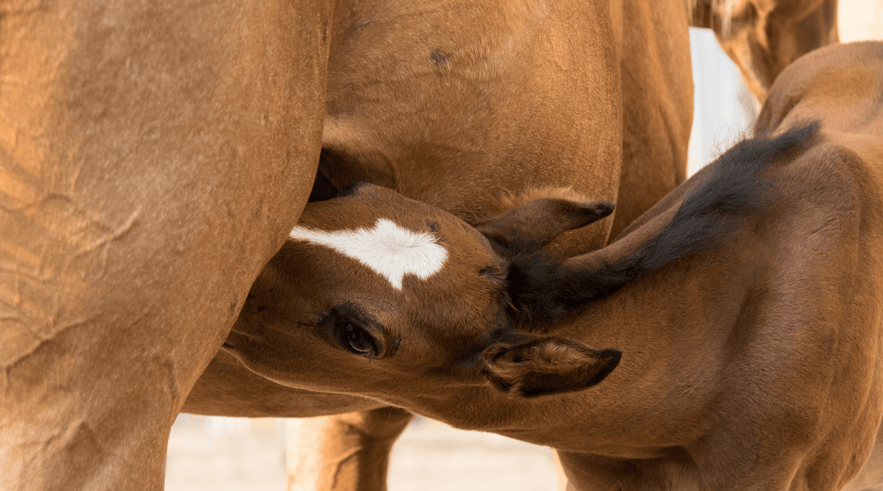
Supporting a lactating mare’s milk production is essential for the health and growth of her foal. Here are some expert tips to help improve and support milk production.
Supply a diet rich in energy and protein
This can be achieved by incorporating high-quality forage, including alfalfa, which provides essential nutrients and promotes overall health. Look for hay that is properly dried and free from contaminants, as this can significantly impact milk quality. Select a grain concentrate designed for a lactating mare and feed according to manufacturer’s guidelines.
Maintaining a consistent feeding schedule
Regular feeding times help regulate the mare’s metabolism and ensure she receives a steady supply of nutrients throughout the day. This routine can also help prevent digestive issues, which can negatively affect health and ultimately milk production. Aim for multiple small meals rather than one or two large feeds to keep her energy levels stable.
Monitor and adjust based on body condition score
Regularly assess your mare’s BCS, aiming to keep her between a 5 and 7 on the 9-point scale. This helps ensure she maintains an ideal balance of energy reserves to support milk production without becoming underweight or overweight. If her condition declines, increase her calorie intake with higher-quality forage or added concentrate. If she gains excess weight, reduce her feed or increase exercise to maintain a healthy condition throughout lactation.
If you have questions, please contact the nutritionists at Standlee, or consult with your veterinarian.
By Dr. Stephen Duren
Standlee Nutritional Expert - Performance Horse Nutrition


